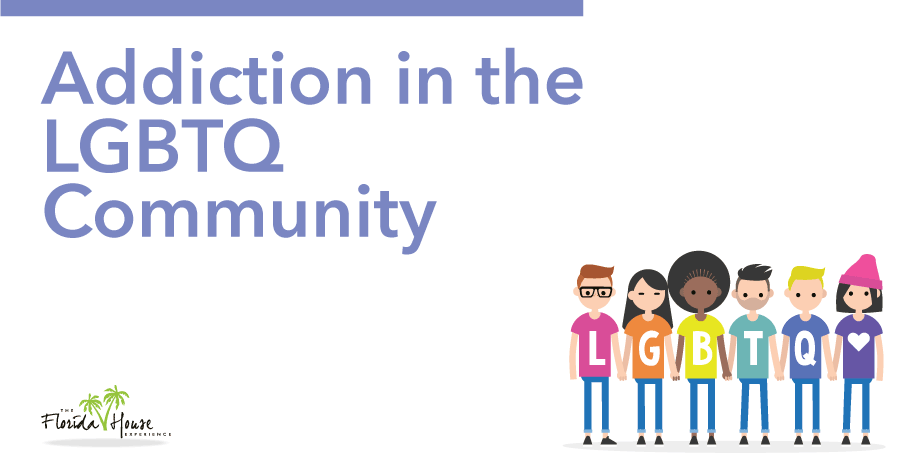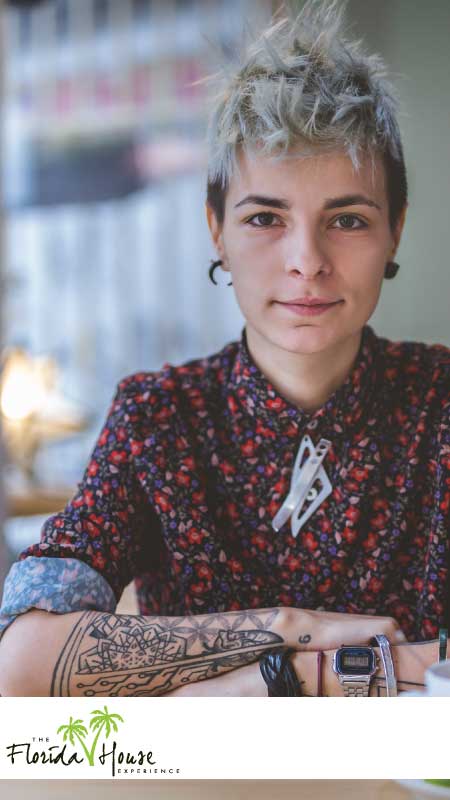
Drug addiction has become a serious issue that requires an urgent solution. Overdose and addiction rates just continue to rise as time passes, leaving many at risk for no chance to recover from their substance abuse. For those that do have the opportunity to go through treatment there is the opportunity to understand and pinpoint underlying causes or behaviors that lead to use.
Unfortunately, addiction does not discriminate in any way against which life it takes over. Race, gender, sexuality, social status, it doesn’t matter. None of that excludes anyone from the stronghold of addiction. The reason behind a person’s addiction has many factors attached to it. One example of that is the prominence of drug addiction among the LGBTQ (Lesbian, gay, bisexual, transgender, queer) community. According to the National Institute on Drug Abuse, studies have shown that addiction rates are higher among this community when compared to the general population.
What Challenges Do They Face?
The inability to cope with emotions, co-occurring disorders, and past traumas are some of the main underlying issues that lead to drug addiction. For those suffering from drug addiction, there are many challenges that are faced throughout life that explains the higher rate of addiction. These challenges make it more likely to turn to drugs or alcohol to process the emotions and feelings that are unmanageable. Here are a few socially imposed obstacles that are faced on a daily basis:
- Discrimination against sexual orientation
- Hate crimes, threats
- Emotional abuse, ridicule
- Public humiliation
- Rejection from family or friends after coming out
- Loss of employment or inability to progress with employment
- Internal hate or homophobic tendencies
Often times, when it comes to drug addiction, self-medication is a coping mechanism for the emotional turmoil or past traumas that have been experienced. The use of any substance is a temporary solution for an internal problem. Within the LGBTQ community, the obstacles and internal battles that are faced daily leaves an individual at high risk for developing substance abuse disorder.
Why Are Addiction Rates So High?
 When it comes to drug addiction amongst the LGBTQ community, there are many factors that play into it.
When it comes to drug addiction amongst the LGBTQ community, there are many factors that play into it.
Stress – As a society we have made great strides over the past few decades when it comes to gay rights and acceptance. While those in the LGBTQ community have never been treated better overall, it doesn’t meant that everyone and every community is accepting. Members of the LGBTQ community still continue to face high levels of stress. This stress can stem from discriminatory laws and practices in employment, housing, relationship recognition and health care, as well as stigma and challenges with their family and friends. Unfortunately, many in the LGBTQ community turn to drugs and alcohol to help cope with things such as higher levels of anxiety, fear, isolation, depression, anger and mistrust.
Limited Treatment Services – While the goal of treatment facilities is to help treat anyone with a problem, it is easier said then done. In many cases, those in the LGBTQ community have unique needs that many treatment centers just aren’t equipped to handle. In fact, a national study found that of the 854 treatment programs that reported to have specialized treatment services for LGBTQ people, only 62 confirmed these services actually existed during a telephone follow-up. This means that about 70 percent of the addiction treatment services noted as specialized for LGBTQ people were really no different from those provided to non-LGBTQ people.
Potential Discrimination – Unfortunately, discrimination is still found in our society. It’s one of the contributing factors to the stress and subsequent dealing with the stress that many in the LGBTQ community face on a daily basis. That discrimination isn’t just limited to the streets though. It can be prevalent in places like treatment centers too. In fact, it’s that potential for discrimination that leads to reluctance to go into treatment. In an environment where you are encouraged to share things about yourself and your life, many in the LGBTQ community are afraid to do so in fear of hostility.
What About Co-occurring Disorders?
An aspect that may provide internal conflict for members of the LGBTQ community is that oftentimes, they are forced to live a “closeted” life. This is where they hide their sexuality from others in fear of rejection, and lead a double life in regards to acting on their sexual orientation. Keeping something of that magnitude a secret, even from those whom you are closest with, can take a significant psychological toll on a person. This can lead to the development of emotional, or even mental, conditions and disorders. Some common psychological or emotional disorders among the LGBTQ community include:
- Major depression
- Generalized anxiety disorder
- High levels of stress
- Suicide attempts or self-harming tendencies
In addition to the societal challenges they face, an LGBTQ individual may also be experiencing physical or health issues related to their sexuality. These can also contribute to an addiction and may include:
- Compulsive sexual behavior
- Sexual dysfunction
- Sex or HIV-related anxiety
- Sexual abuse or assault
Fighting Against Addiction In The LGBTQ Community
While we have come a long way as a society, we still have a long way to go. Unfortunately for many it is still very difficult to feel as if it is okay to be yourself. This can result in unrealistic expectations and low esteem. When it comes to addiction, expectations and self-esteem are critical to be able to achieve long-term sobriety. Accepting yourself and your addiction will provide you with the opportunity to let go of your painful past and create a new way of living. The fight against drug addiction reveals a hope for those who are suffering. There is a way to break free from addiction. Through substance abuse treatment, one can learn about coping mechanisms and therapy that can be used as a defense against addiction or future use. Relapse prevention therapy highlights all of the thought processes, behaviors, people, and places that are detrimental to a life of recovery. To move forward from a life of addiction all it takes is an open mind and the willingness to accept the help that is readily available.
Are You In Need of Drug Addiction Treatment?
When it comes to drug addiction, there is no race, color, creed, or gender. While many in this world might discriminate, drug addiction doesn’t. At FHE Health we know this and are accepting of all people. If you want to get help, we want to help you achieve that goal. To learn more about our services, contact us today at 833-596-3502.






